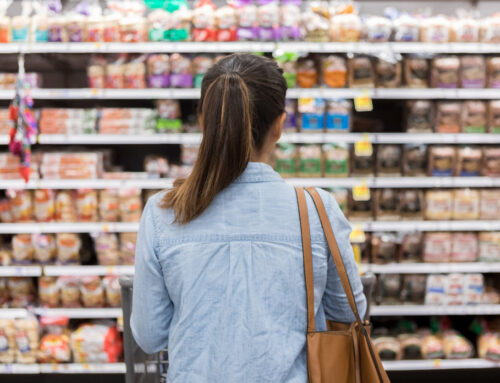The following blog was written by former Walden patient Miranda S.
I sickeningly treasured my initial diagnosis of anorexia as a unique, personal detail for seven years. My first outpatient recovery stint was supported and welcomed by my fellow eighth-grade peers. Anita regularly nodded along to my complaints about not being able to swap ice cream for frozen yogurt in the middle of our engineering exploratory. I am already not scientifically-minded, but Rude Goldberg diagrams paled in comparison to the anger and confusion I felt at the weight I was gaining, the multiple doctor’s visits a week, and the snacks I stomached across the school nurse’s desk while she flipped through Cooking Light. Fortunately, I was eventually discharged from this program by virtue of being nutritionally rehabilitated. But while reaching a BMI-friendly weight and regaining a period marked my body’s recovery, my mental schemas still needed seemingly irreparable healing.
From freshman year of high school to junior year of undergraduate, I still refused to touch refined grains and added sugars and balanced intake with exercise, the appearance enhancements of which granted more attraction in all-important adolescent romances. My mind was cataloged with indexes of “good” and “bad” foods, requirements for exercise, and modifications to be made to my appearance. This dieting-Dewey-Decimal system served me well by providing a sense of accomplishment, familiarity, and security amidst the uncertain: entering college, healing from two rapes, and coping with the repercussions of the Novel Coronavirus. Being sent home with only infrequent Zooms and well-intentioned emails with professors for external accolades began to pick at the scabbed-over “recovery” I had made in eighth grade. In about one and a half months, I lost 10% of my body weight as a side effect of my coping with the loss of usual perfectionist measures. Another well-documented side effect of intense restriction and over-exercise is mental hunger, understood in the eating disorder community as repetitive, obsessive thoughts about food that occur as a result of your body’s hope for nourishment after restriction. One April afternoon during an online class session, I scrolled through search results for decadent baking recipes and low-calorie vegetarian dinners, although I knew that both would be too “unsafe” to actually consume. Mental hunger was in full swing to mask my intense physical stomach pangs, an interesting comparison to my eighth-grade lapse of hunger cues altogether.
My journal entry for this afternoon recounts: “I don’t deserve to live the rest of my life like this. I don’t deserve to live the rest of my life in quasi-recovery”. By April, my experience and interest in social justice naturally led me to anti-diet activism. While I agreed with the core values of the numerous advocates I followed and routinely encouraged others to eat intuitively, these truths did not seem to apply to me and my tiny, well-groomed eating disorder treasured in the crook of my chest, swaddled in PERFECT warm and cozy blankets delivered exactly on time, no matter the circumstances.
Therefore, while I admitted that from my 2014 outpatient graduation on I was “quasi-recovered”, which the Eating Disorder Institute understands as “when a patient is no longer actively trying to eat less, lose weight, reach a target shape of some sort but they continue to create sub-clinical levels of energy deficits every day in their bodies”, I had accepted the sub-par life long-term restriction would bring me. Therefore, the major wake-up call of my quarantined relapse into compulsive “sub-clinical levels of energy deficits” forced me to reconcile with the sleeping bear of the eating disorder still inside me.
Henceforth, I enrolled in Walden Behavioral Care’s virtual Partial Hospitalization Program. I credit my success in “eating school”, as I had lovingly dubbed six-hour days complete with multiple “class” (group therapy) sessions, breakfast, lunchtime, and snack time, first to the clinicians and fellow patients I learned and seek affirmation of my healing from. However, as my time in this program progressed and my determination to be the best food student I could be grew, perhaps this was my usual academic drive revving back in full force, I began to feel an increased confidence in my own voice, wisdom, and intuition. Belief in my own intuition budded in the beginning, in which I was determined to make this the most effective, meaningful recovery stint possible. My frustration and disappointment at not having been emotionally mature enough, willing enough, or secure in my own self to have challenged regulations around food and exercise in my first recovery was heated up, combusted, and molded into newfound motivation to eat more sugar when I could, not measure servings when I could, and force myself to rest.
While under Walden’s care, I held myself to a high standard of healing. Not an immeasurable, unrealistic expectation to never realize that the eating disorder was proposing a behavior to engage in, such as only eating one spoonful of peanut butter, but instead a prioritization of compassionate, mindful learning that acknowledged the behavior proposed and was confident enough in other options to turn away. Now formally discharged (or “graduated”), I appreciate that “food isn’t the most interesting part of my day!”, as once exclaimed to my clinician. My relationship with movement, food, and my body is neutral. I recognize what I have control over, strive for peace in what I don’t, and refuse to restrict or diminish myself in a strained stretch for security.
While this Summer launched me into healing, I recognize that this process will be lifelong. Squinting ahead, I hope to only increasingly practice intuitive eating, mindful movement, and positive body image by modeling it to others. Diet culture does not hug or congratulate your intuition, but those who love and care about you will. I am wordlessly grateful for the support of my family, friends, and distant acquaintances for their support throughout my Coronanorexiarecovery. This small blog blip, like any writing, will fail to capture all the insights, feelings, thanks, and questions had throughout my healing. Non-academic writing is not a personal strong suit. Daily blog writing even less. (God bless the activists and advocates who run recovery-oriented webpages). This blurb doesn’t detail the gore of my illness, nor the intrusive and compassionate thoughts dealt with. Regardless, healing and the codification of it into digestible bits to the regular reader can never be “perfect”, by virtue of the processes themselves. Leaning into the peace of anti-perfectionism, I accept that this blurb may be most meaningful if I don’t package it into anything it is not meant to be in this moment. Although I did just note that I am not feeling particularly advice-y this particular afternoon, an affirmation that served, and still serves, me strongly is that everything is meant to be.
Yes, I recognize from 1) any perspective and 2) especially from my social justice background that this rosy view is FLAWED. But for the sake of healing already done and yet to happen, I trust the wisdom of my body, intuition, and soul for the rest of my life. My recovery was meant to be because my fullest life is my destiny. Peace.
Helpful Resources:
- https://tabithafarrar.com
- https://christyharrison.com
- Podcast: Food Psych
- https://www.waldenbehavioralcare.com/treatment/eating-disorder-treatment/
- https://self-compassion.org
Thanks to my family, friends, Walden buddies and staff, and all my loved ones. (You are all loved ones).







